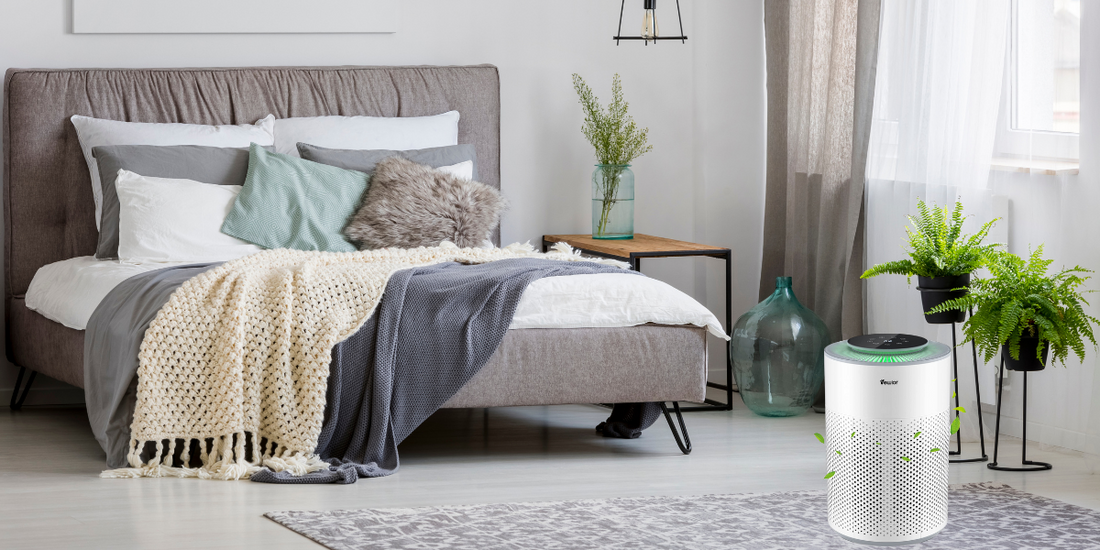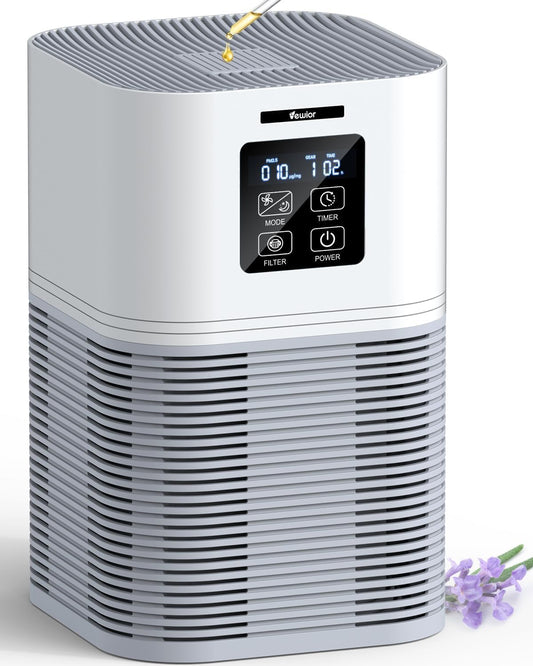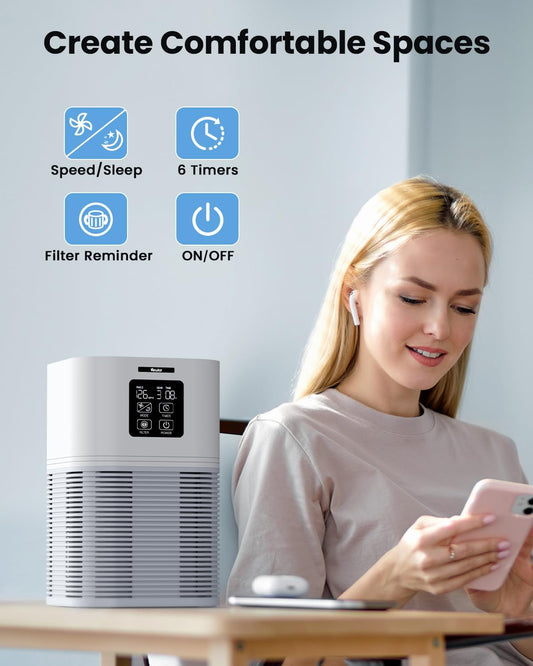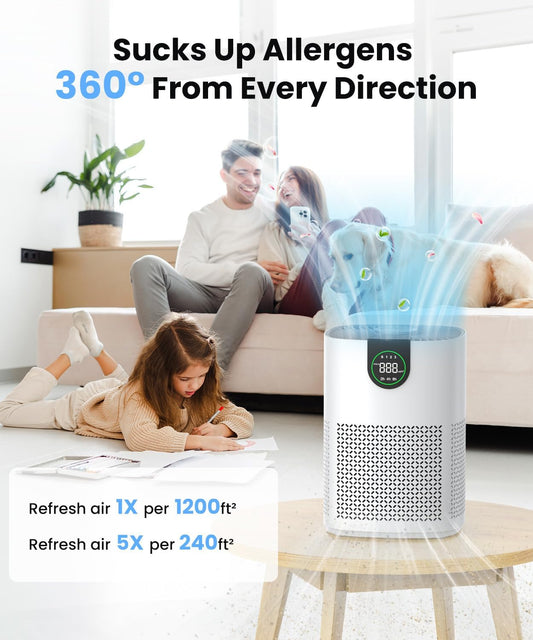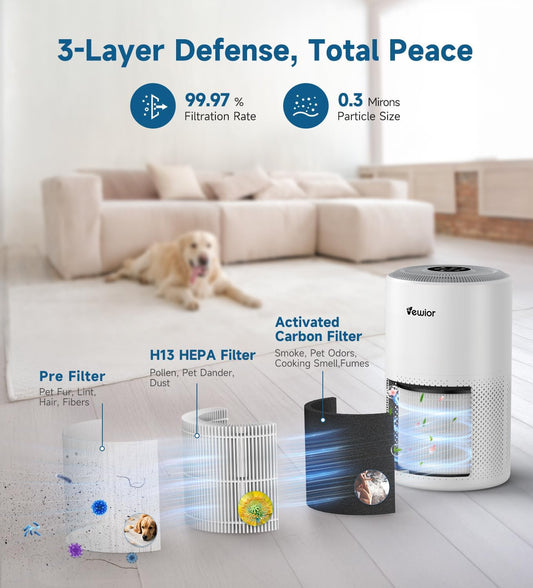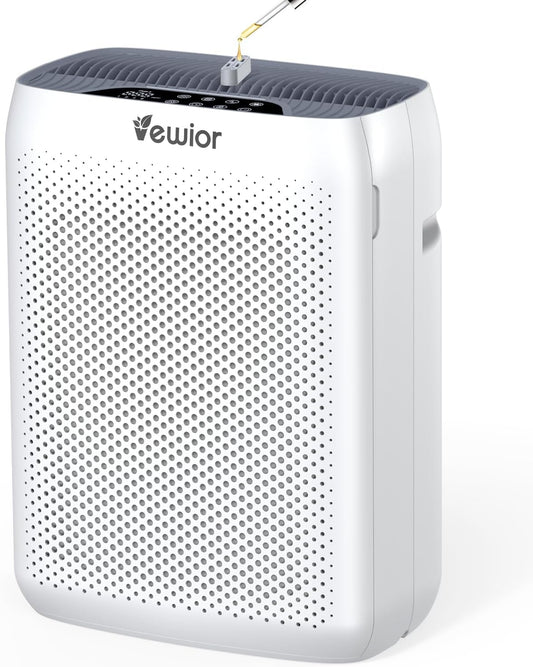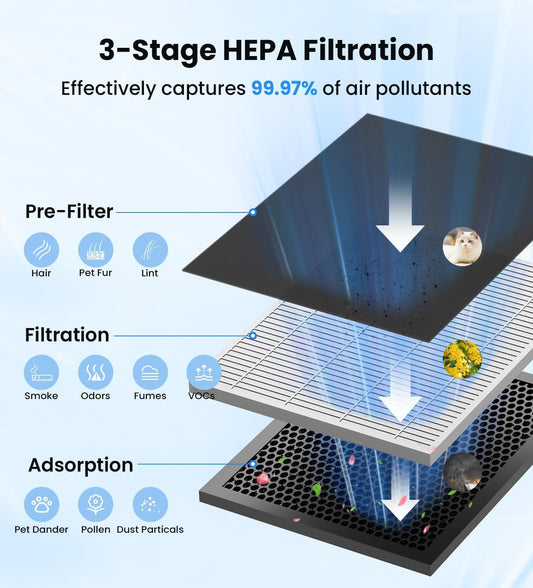Air purifiers have become increasingly popular for improving indoor air quality and creating a healthier living environment. One common question that arises is how often should an air purifier be run to achieve optimal results? In this article, we will explore the factors that determine the runtime of an air purifier, providing valuable insights to help you strike the right balance for clean and fresh indoor air. Let's delve into the details and discover the ideal frequency for running your air purifier.
Determining Factors for Air Purifier Runtime
The recommended runtime for an air purifier depends on several factors that vary from one situation to another. Let's examine these factors to understand how they influence the frequency of running your air purifier:
1. Indoor Air Quality
The initial air quality in your home plays a significant role in determining how often you should run your air purifier. If your indoor air is heavily polluted due to factors such as smoking, pet dander, or high levels of dust and allergens, running the air purifier for longer periods may be necessary to effectively purify the air and maintain a clean environment.
2. Specific Needs and Concerns
Consider your specific needs and concerns when determining the runtime of your air purifier. For example, individuals with allergies or respiratory conditions may require continuous air purification to alleviate symptoms and ensure a healthier breathing environment. On the other hand, if you only need occasional odor control or are targeting specific areas, running the air purifier for shorter durations may be sufficient.
3. Room Size and Air Purifier Capacity
The size of the room in which the air purifier is placed and the capacity of the air purifier itself are crucial factors. Larger rooms may require longer runtime or the use of multiple air purifiers to ensure effective air circulation and purification. Additionally, the Clean Air Delivery Rate (CADR) of the air purifier, which indicates the volume of purified air produced per minute, is an important consideration. Higher CADR values generally result in quicker air purification and may require less runtime.
4. Outdoor Air Quality
The quality of outdoor air can also impact the runtime of your air purifier. If you live in an area with high levels of outdoor pollutants, such as pollen or pollution from nearby industrial areas, running the air purifier more frequently can help mitigate the entry of outdoor contaminants and maintain cleaner indoor air.
5. Noise Considerations
Some air purifiers produce noise during operation, which can be a concern, especially when used in bedrooms or quiet spaces. In such cases, you may choose to run the air purifier during the day or in specific time intervals to maintain a balance between air purification and noise levels.
Determining the Ideal Runtime for Your Air Purifier
While there is no one-size-fits-all answer, here are some general guidelines to help you determine the ideal runtime for your air purifier:
1. Continuous Operation
For individuals with severe allergies, asthma, or respiratory conditions, running the air purifier continuously can provide consistent relief by maintaining clean indoor air throughout the day and night.
2. Extended Daily Operation
In situations where the air quality is a concern but continuous operation is not necessary, running the air purifier for 8 to 12 hours a day can effectively maintain cleaner air. This timeframe can be adjusted based on specific needs and the air purifier's capacity.
3. Targeted Operation
If you have specific areas or times when air purification is most needed, running the air purifier for shorter durations, such as 2 to 4 hours, can be sufficient. For example, running the air purifier in the kitchen during and after cooking can help remove
unwanted odors and airborne particles associated with cooking.
4. Nighttime Operation
Running the air purifier during the night can be beneficial for individuals who suffer from allergies or respiratory conditions and want to ensure clean air while sleeping. Set the air purifier on a lower fan speed or utilize a sleep mode if noise levels are a concern.
5. Seasonal Considerations
Consider adjusting the runtime of your air purifier based on seasonal factors. For instance, during allergy seasons when pollen counts are high, running the air purifier for longer periods can help alleviate symptoms caused by outdoor allergens.
Monitoring and Adjusting Runtime
It's important to monitor the air quality in your home and adjust the runtime of your air purifier accordingly. Regularly check the air purifier's filters for dirt and debris accumulation, as clogged filters can hinder its performance. If you notice a decline in air quality or increased presence of allergens, it may be necessary to increase the runtime or adjust the fan speed of your air purifier.
Conclusion
Regularly monitoring the air quality and filter condition will ensure optimal performance of your air purifier. By finding the right balance and effectively utilizing your air purifier, you can create a healthier living environment and enjoy the benefits of clean and purified air. Breathe easier, live better, and enjoy the comfort of a fresh and purified indoor atmosphere with the right runtime for your air purifier.

